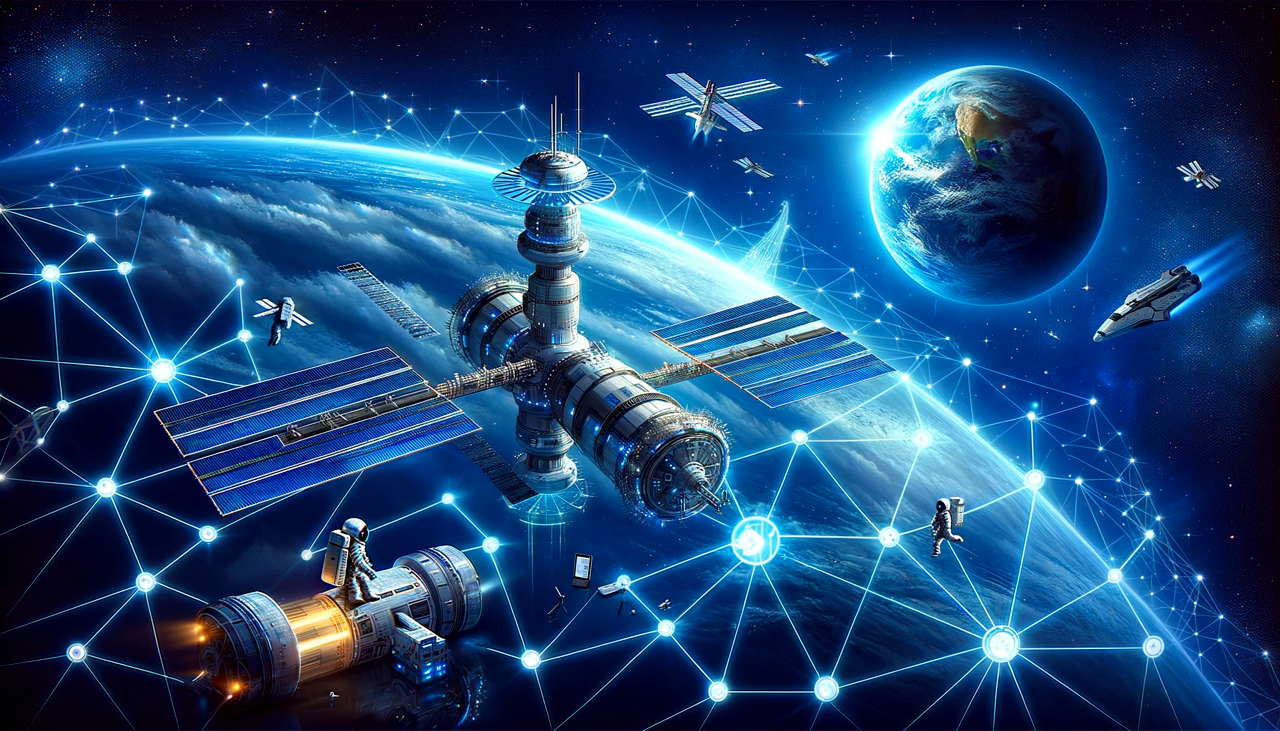Space, often referred to as the final frontier, has continuously fascinated humanity. The quest to explore beyond our world has not only satisfied our innate curiosity but has also driven groundbreaking technological advancements. This article aims to take you on a comprehensive journey through the latest developments in space exploration, encompassing historical milestones, current technologies, key discoveries, prospects, challenges, and the impact on our world.
Read More: The UK Investment in Space Technology: A New Frontier
Contents
- 1 Space Exploration
- 2 Historical Perspective
- 3 Modern Technologies in Space Exploration
- 4 Key Discoveries and Findings
- 5 Future of Space Exploration
- 6 Challenges in Space Exploration
- 7 Public Interest and Engagement
- 8 Commercial Space Exploration
- 9 Space Tourism
- 10 The Role of International Collaboration
- 11 Environmental Impact of Space Exploration
- 12 Ethical Considerations
- 13 Exciting Developments in Astrophysics
- 14 Space Exploration and Inspiration
- 15 The Final Words
Space Exploration
Space exploration, the systematic investigation of outer space using astronomy and space technology, serves to unravel the mysteries beyond Earth’s atmosphere. It encompasses the exploration of celestial bodies, phenomena, and the vastness of the cosmos.
Importance and Curiosity Surrounding Space Exploration
The significance of space exploration lies not only in scientific discoveries but also in the human quest for knowledge and understanding. Our natural curiosity about the universe and its wonders has been a driving force, propelling us into the realm of the unknown.
Historical Perspective
Early Milestones in Space Exploration
The journey into space began with the launch of Sputnik 1, the first artificial satellite, by the Soviet Union in 1957. This marked the commencement of an era where humanity aimed to reach beyond the confines of our planet. Subsequent milestones include the iconic Apollo moon landings, exemplifying the audacity of human exploration.
Evolution of Space Agencies and Their Contributions
The establishment of space agencies, such as NASA, ESA, Roscosmos, and ISRO, has played a pivotal role in advancing our understanding of space. These agencies, through collaboration and competition, have propelled us to new frontiers, contributing to the global knowledge pool.
Modern Technologies in Space Exploration

Satellites and Their Roles
Satellites orbiting Earth serve multifaceted purposes, from communication and weather monitoring to scientific research. They provide crucial data for environmental studies, navigation, and telecommunications, highlighting their indispensable role in modern space exploration.
Robotic Missions and Their Significance
Unmanned robotic missions, exemplified by Mars rovers and interplanetary probes, have become the vanguards of space exploration. These missions enable us to study distant celestial bodies without exposing human lives to the harsh conditions of space.
Human Space Exploration Endeavors
Initiatives like the International Space Station (ISS) represent the collaborative efforts of various nations in human space exploration. The ISS serves as both a laboratory for scientific research and a testament to international cooperation in space endeavors.
Key Discoveries and Findings
Exploration of Exoplanets
Advancements in telescopic technology have led to the discovery of thousands of exoplanets beyond our solar system. The search for habitable exoplanets raises exciting prospects for the potential discovery of extraterrestrial life.
Search for Extraterrestrial Life
Missions like the upcoming James Webb Space Telescope aim to scrutinize the atmospheres of exoplanets, searching for biosignatures that could indicate the presence of life beyond Earth.
Unraveling Mysteries of Black Holes
Recent breakthroughs, including the first-ever image of a black hole, have expanded our understanding of these enigmatic cosmic entities. Ongoing research delves into the fundamental properties and roles of black holes in the universe.
Future of Space Exploration
Upcoming Missions and Projects
The future of space exploration promises exciting missions, such as the Artemis program, aiming to return humans to the Moon. Additionally, the Mars Sample Return mission represents a significant step towards understanding the Red Planet.
Collaboration Among Space Agencies
International collaboration remains paramount in addressing the challenges of space exploration. Shared resources, expertise, and costs enhance the efficiency and success of ambitious space missions.
Potential Advancements in Propulsion Technologies
Research into advanced propulsion systems, including ion drives and solar sails, holds the potential to revolutionize space travel, making exploration of distant celestial bodies more feasible.
Challenges in Space Exploration
Technological Challenges
Space exploration continually faces technological hurdles, from improving life support systems to developing more efficient propulsion methods. Overcoming these challenges is crucial for the success of future missions.
Environmental and Human Challenges
The environmental impact of space exploration, including space debris and the potential alteration of celestial bodies, demands careful consideration. Moreover, ensuring the well-being of astronauts during extended missions remains a priority.
Ethical Considerations
As humanity expands its presence in space, ethical considerations regarding the responsible use of space resources and the potential impact on indigenous cultures must be addressed.
Public Interest and Engagement
Impact of Space Exploration on Public Awareness
Space exploration captures the imagination of the public, fostering interest in science, technology, engineering, and mathematics (STEM) fields. Iconic moments, such as moon landings and rover discoveries, resonate with people worldwide.
Educational Initiatives and Outreach Programs
Space agencies actively engage in educational initiatives and outreach programs to inspire the next generation of scientists and explorers. Programs like STEM camps and interactive exhibits contribute to building a scientifically literate society.
Commercial Space Exploration
Rise of Private Space Companies
The emergence of private space companies, exemplified by SpaceX and Blue Origin, has injected new vigor into space exploration. These companies bring innovation, competition, and economic opportunities to the space industry.
Economic Opportunities in Space Exploration
Commercialization of space presents economic opportunities, ranging from satellite deployment services to the potential mining of asteroids for valuable resources. The economic viability of such endeavors could reshape the space industry.
Space Tourism
Emergence of the Space Tourism Industry
Advancements in technology and the involvement of private companies have made space tourism a tangible reality. Individuals now have the prospect of experiencing the wonders of space firsthand.
Pros and Cons of Space Tourism
While space tourism opens new frontiers, it also raises ethical and environmental concerns. Balancing the benefits and challenges is essential to ensure the sustainability of this nascent industry.
The Role of International Collaboration
Joint Missions and Partnerships
Collaboration on a global scale enhances the success of space missions. Joint efforts allow nations to pool resources, share expertise, and tackle complex challenges collectively.
Contributions from Various Countries
Different nations contribute unique perspectives and capabilities to the collective pursuit of space exploration. The diversity of contributions enriches our understanding of the universe.
Environmental Impact of Space Exploration
Space Debris and Its Management
The increasing amount of space debris poses a significant threat to ongoing and future space missions. Developing effective strategies for debris management is crucial to safeguarding the orbital environment.
Sustainable Practices in Space Exploration
As space exploration advances, adopting sustainable practices becomes imperative. Responsible resource utilization and waste management are essential to minimize the ecological footprint of human activities in space.
Ethical Considerations
Use of Space Resources Responsibly
The utilization of space resources, such as minerals and energy, must be approached with responsibility to prevent overexploitation and environmental harm.
Impact on Indigenous Cultures and Traditions
Exploration and potential utilization of celestial bodies raise ethical questions about their impact on indigenous cultures and traditional beliefs. Respectful engagement and collaboration are essential in addressing these concerns.
Exciting Developments in Astrophysics
Advances in Studying the Universe
Astrophysics continues to advance, with discoveries such as gravitational wave detections providing new insights into the fundamental nature of the universe. These breakthroughs expand our understanding of cosmic phenomena.
Theoretical Breakthroughs and Their Significance
Theoretical advancements in areas like dark matter and dark energy contribute to our evolving comprehension of the universe’s composition and dynamics. The pursuit of knowledge in theoretical astrophysics opens new avenues for exploration.
Space Exploration and Inspiration
Impact on Scientific Careers
Space exploration serves as a beacon of inspiration for aspiring scientists and engineers. The challenges and triumphs of space missions motivate individuals to pursue careers in STEM fields.
Motivating the Next Generation
Educational initiatives, success stories from space missions, and the allure of the cosmos inspire the next generation. Encouraging young minds to explore the wonders of science and technology is vital for the continued progress of space exploration.
Read More: Business in Digital Age: Strategies for Success
The Final Words
The journey beyond our world through space exploration remains an ongoing and dynamic endeavor. From historical achievements to contemporary breakthroughs, the pursuit of knowledge about the cosmos shapes the future of humanity. As we face challenges and celebrate triumphs, the evolving landscape of space exploration promises an exciting and inspiring future for generations to come.




